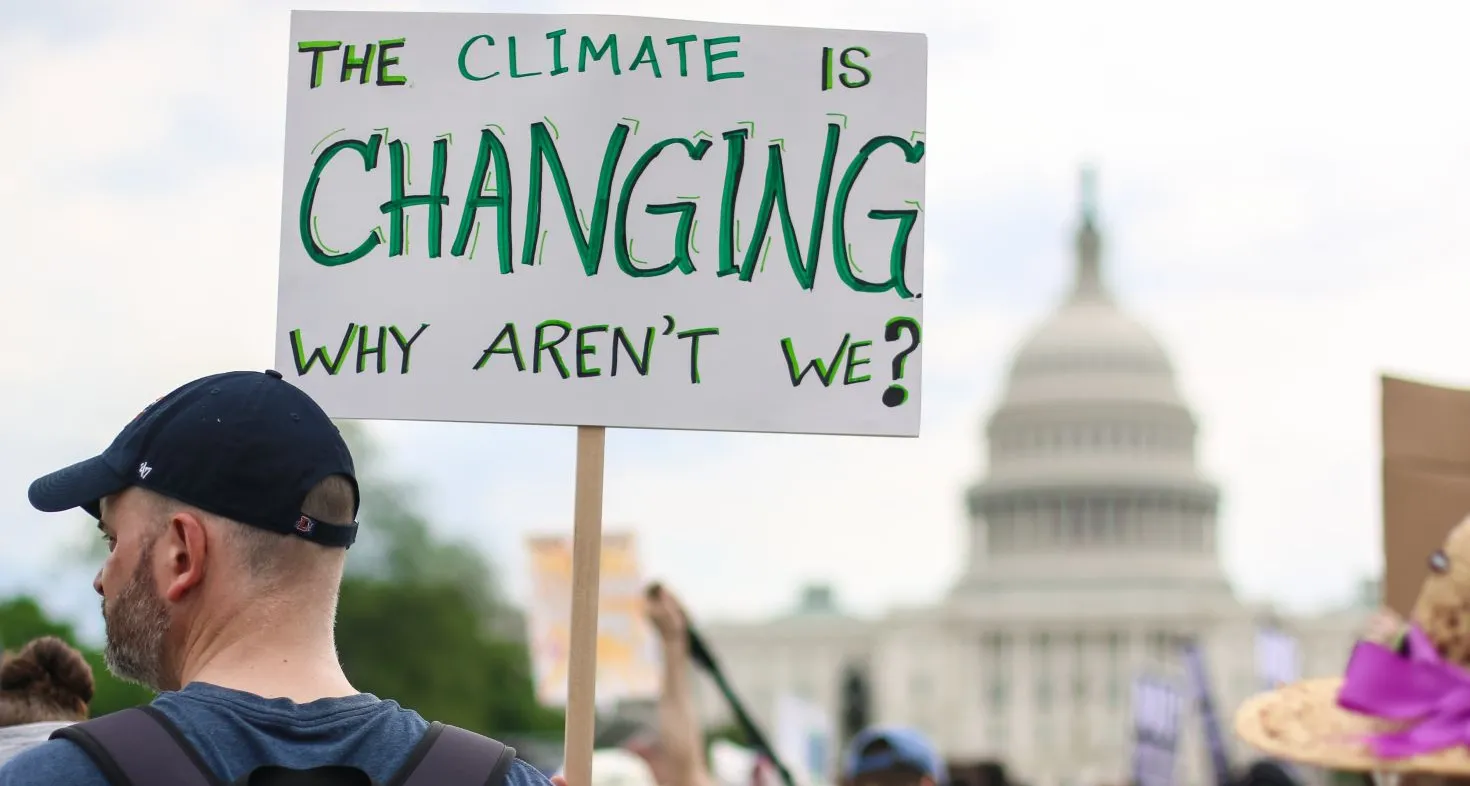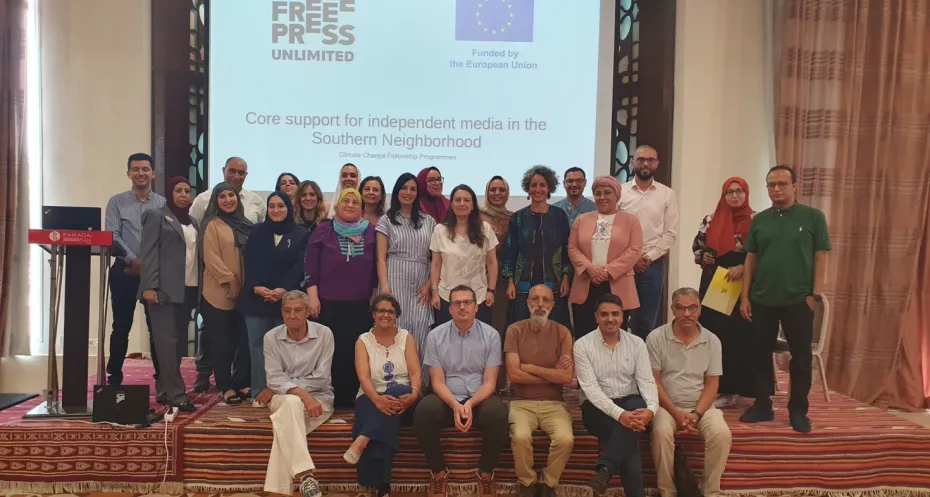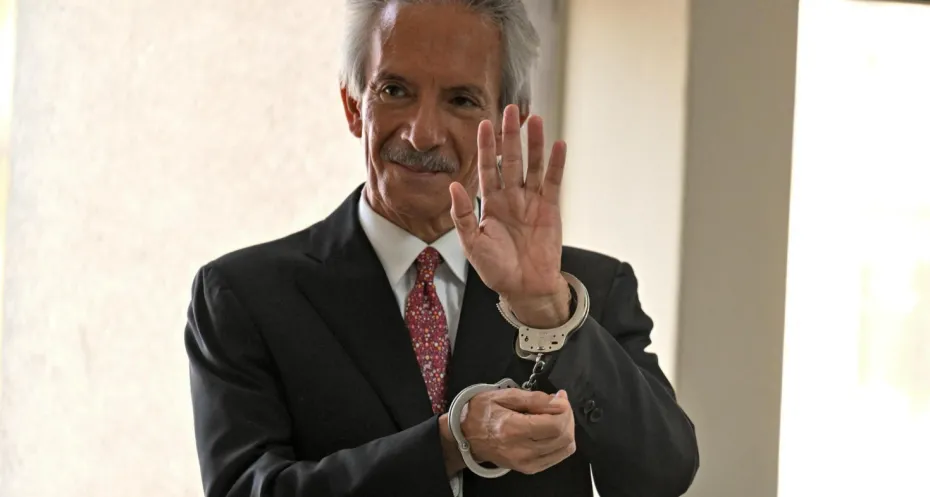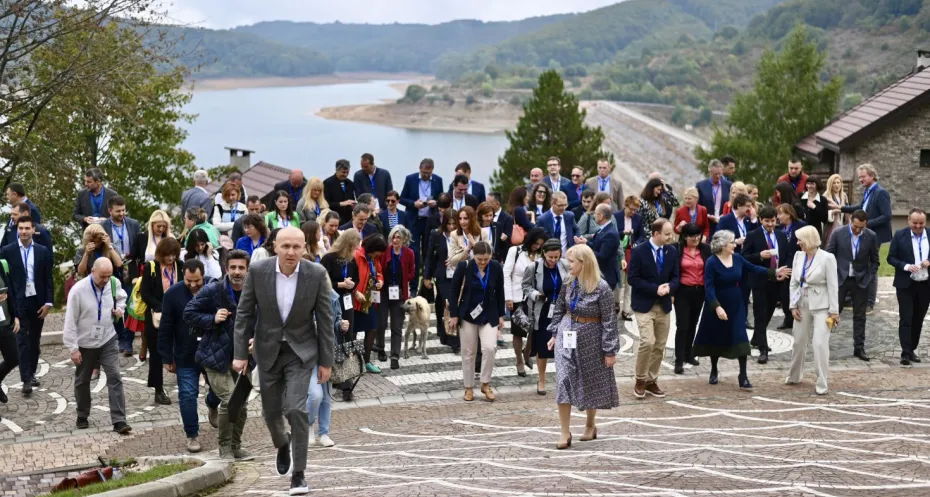
Climate journalism: the risks of reporting on “the biggest story of our time”
Climate change and environmental issues are among the biggest challenges the world faces today. Reliable and thorough reporting on this topic is therefore vital. But climate journalism faces its own challenges, like becoming a target when exposing wrongdoings or negligence of power holders. Being a climate journalist has quickly become one of the most dangerous professions there are.
Climate journalists face many forms of harassment, like (online) threats and physical and legal attacks. Something Sebastián Rodríguez can confirm, as an experienced climate reporter, and special projects editor of Climate Home News, a news platform that believes that quality climate journalism can change the world for the better. “Climate change is the biggest story of our time. Our goal is to deliver original journalism that informs and inspires action to tackle the global climate crisis.”
Free Press Unlimited has provided legal support to Climate Home News, and speaks to Sebastián Rodríguez about the current challenges in their work.
Can you describe the risks you and your colleagues face while reporting on critical issues like climate change?
“The editorial team at Climate Home News handles both daily news and in-depth investigative projects. With a growing emphasis on investigative journalism, managing risks has become crucial. Our investigative team, particularly freelancers who don’t have the same protections as our in-house journalists, often face online and physical threats. To prioritise their safety, we've developed comprehensive risk mitigation strategies.
We've also faced legal challenges, like potential lawsuits, which threaten our ability to operate freely. Our journey into investigative journalism has brought with it the constant danger of backlash from powerful entities, highlighting the importance of proactive risk management. This reality has led us to seek assistance from organisations like Free Press Unlimited, enabling us to continue our crucial work of speaking truth to power.”
What legal threats has Climate Home News faced when investigating sensitive topics?
“Our investigative journalism has frequently encountered legal intimidation, primarily from influential figures in the private sector who view our reporting as a threat to their business interests. A prime example occurred during our investigation in Namibia, where we investigated a company with suspicious financial activities linked to tax havens. Upon uncovering inconsistencies and seeking responses, we received not only a standard reply from their PR agency but also a vaguely threatening letter from their lawyers, hinting at possible defamation lawsuits. This tactic wasn't new to us; our coverage on climate issues, including energy and carbon credits, has often attracted such intimidatory responses, especially from project owners feeling wronged by our reports.
To address these challenges, we adhere to rigorous journalistic standards, and offer platforms for responses. This approach aims to protect our investigations from legal disputes, relying on accuracy and fairness as our strongest defences. Assistance from Free Press Unlimited has been invaluable here, particularly during our work in Namibia, aiding us in navigating legal threats and continuing our pursuit of truth.
Interestingly, we've observed that threats predominantly come from the private sector, more so than from the government or public entities. Fortunately, we have not yet had to engage in legal battles over these issues, unlike some of our partner outlets, that have faced significant legal and financial consequences.”
How did legal intimidation impact the investigative process and the team's approach to reporting on the Namibian project?
“In investigative journalism, legal threats significantly impact reporting outcomes. The Namibia investigation highlighted this challenge. Despite our diligent fieldwork, thorough documentation, and meticulous checks, receiving a legal letter prompted us to conduct additional reviews. We sought assistance from Free Press Unlimited’s legal expert, who provided expertise in assessing our article for potential risks. However, these additional checks delayed publication and payment to our freelancers. Such legal pressure compels us to exercise heightened caution, sometimes at the expense of narrative depth. Striking a balance between upholding journalistic integrity and navigating legal obstacles is crucial in in-depth investigative journalism.”
Can you say more about the process of reviewing an article from a legal standpoint to mitigate potential defamation risks, while ensuring the report's integrity and impact?
“Reviewing articles from a legal standpoint involves triple-checking details to avoid giving grounds for defamation claims. This process can make stories drier by cutting "colour" that adds depth but could be seen as defamatory. It's a balance between telling a compelling story and mitigating legal risks, ensuring the report's integrity while preparing for potential defamation risks.
A key lesson for us is that identifying risks early and seeking expert help is crucial. Legal assistance allows us to continue telling important stories, while safeguarding journalistic integrity and freedom of expression. Without Free Press Unlimited’s legal support, our reporting could have been significantly compromised, affecting our ability to uncover and report on critical environmental issues.”




